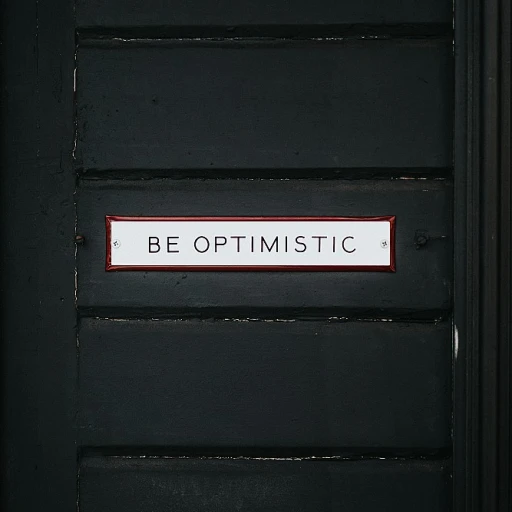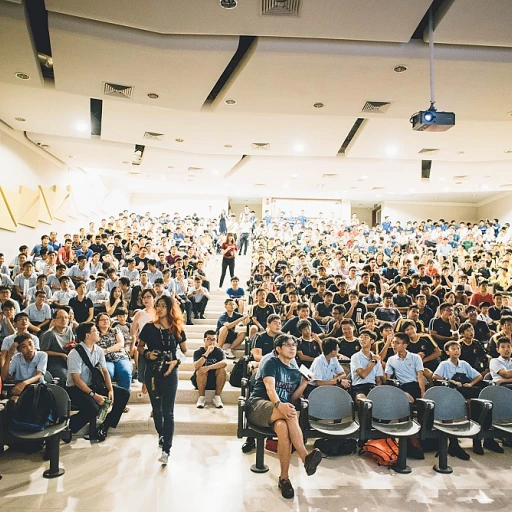
The Importance of Talent Recognition
The Critical Role of Talent Recognition
Recognizing the talents of employees within a company plays a critical role in shaping an organization’s success. In today’s fast-paced work environments, acknowledging and appreciating the skills and contributions of team members is not just a nice-to-have but a fundamental component of positive workplace culture. Acknowledgment is more than just a simple gesture. It goes a long way in building a cohesive team and nurturing the growth and development of both individuals and the company as a whole. Talent recognition opens a window to understanding the unique strengths that each team member brings to the table. This acknowledgment fosters a sense of belonging and ensures that employees feel valued for their hard work. When leaders make it a point to consistently appreciate their employees, it paves the way for enhanced job satisfaction and employee engagement. Acknowledgment creates an environment where employees feel motivated and encouraged to perform their best. Incorporating effective recognition programs is crucial. These programs don't only highlight employee achievements but also boost morale and enhance productivity. The impact of recognition transcends individual appreciation, influencing the broader work culture and life balance within the organization. Employees who are recognized openly for their efforts and capabilities are more likely to feel connected and committed to their company. Moreover, the right culture of recognition can drive the leadership development needed to maintain a thriving workplace. To explore more about impactful workplace practices, check out these inspiring examples of going the extra mile at work. It’s clear that establishing an ongoing culture of recognition is not just beneficial - it is essential for fostering a productive and supportive work environment.Strategies for Effective Talent Acknowledgement
Implementing Recognized Techniques
Recognition in the workplace extends beyond the confines of annual reviews and ceremonies. To foster a genuine culture of appreciation, it's crucial for leadership to engage in ongoing acknowledgment of their team members' talents. Here are several strategies for effective talent acknowledgement:- Timely and Specific Recognition: Acknowledge team members' contributions soon after they're made. This immediate feedback loop reinforces the value of hard work and ensures that employees feel appreciated. Instead of vague compliments, provide specific examples of the impactful actions taken, which makes the acknowledgment feel personal and meaningful.
- 360-Degree Feedback: Incorporating feedback from peers and subordinates opens a window for a more holistic view of employee contributions. This approach not only highlights successful team dynamics but also empowers members to assume leadership roles, nurturing a supportive team environment.
- Recognition Programs: Developing structured employee recognition programs can create consistent opportunities for employee appreciation. These programs should be customized to align with the company's culture and goals, ensuring that all employees feel their efforts are acknowledged. Inspiring motivation by encouraging the heart can effectively boost morale and foster job satisfaction.
- Public vs. Private Appreciation: While some employees enjoy public acknowledgment during company meetings or in internal newsletters, others may prefer private recognition. Understanding and respecting individual preferences helps ensure that appreciation efforts positively impact each team member's work life balance.
The Impact on Employee Morale and Productivity
The Ripple Effect of Acknowledging Hard Work
Recognizing the talents of employees in the workplace is more than just an act of courtesy; it is a powerful catalyst for enhancing morale and productivity. When team members feel acknowledged, their engagement levels soar, fostering a workplace environment where creativity thrives and innovation blossoms. By implementing successful employee recognition programs, employers open windows not only to job satisfaction but also to improved work-life balance. Positive reinforcement plays a crucial role in work culture. Leaders who consistently practice appreciation are not only nurturing individual growth but are also building a robust team. Acknowledgment of employee efforts shows that leadership development is a priority, resulting in a more cohesive team where every member knows they matter. Here's how recognizing talent impacts three key areas:- Employee Morale: When people feel appreciated, they experience a surge in confidence and motivation. This appreciation can manifest as public acknowledgments during team meetings or personalized notes expressing gratitude for a job well done.
- Productivity: A positive culture of continuous acknowledgment inspires employees to maintain their level of quality or even exceed it. Recognition encourages employees to push their limits, increasing output without compromising quality.
- Employee Engagement: Acknowledging hard work creates an environment conducive to open communication and mutual respect, leading to higher engagement levels. Engaged employees are more likely to collaborate effectively, contributing to the company’s overall success.
Overcoming Challenges in Talent Recognition
Challenges in Talent Recognition and Ways to Overcome Them
Recognizing and acknowledging the talents of team members is not always straightforward in a dynamic workplace culture. Various challenges can impede effective talent recognition, impacting acknowledgment efforts and, consequently, the overall work environment. Firstly, one of the primary challenges is the lack of a structured employee recognition program. Without a formal recognition mechanism, the acknowledgment of individual and team achievements often becomes sporadic and inconsistent. Creating an organized program that outlines clear criteria for recognition can significantly facilitate appreciation efforts, ensuring employees feel consistently valued. Another issue is time constraints. In many workplaces, the pace of work can be relentless, and leadership may find it difficult to take the time to acknowledge contributions adequately. However, integrating appreciation into regular team meetings and utilizing digital platforms can offer simple solutions to save time while maintaining acknowledgment. Leadership development is crucial for overcoming challenges in talent recognition. Leaders may struggle to identify unique talents or may lack the skills to provide meaningful feedback. Offering leadership training on effective recognition techniques can empower leaders to better appreciate and nurture employee talent. Furthermore, privacy concerns may arise when acknowledging achievements publicly. Striking a balance between public appreciation and respecting employee privacy can be challenging. Consulting with employees on their preferred recognition style can ensure that appreciation efforts align with individual preferences while fostering a positive workplace culture. Finally, cultural recognition within a company must be inclusive and diverse. Recognition programs need to account for diverse backgrounds and ensure fair acknowledgment across all team members. This approach ensures that all employees, regardless of their background, feel appreciated and valued for their hard work, ultimately enhancing team morale and engagement. By addressing these challenges with thoughtful strategies, companies can cultivate a work environment where employees feel acknowledged and motivated to contribute their best every day.Case Studies of Successful Talent Recognition
Real-World Examples of Talent Recognition Success
In the realm of corporate culture, recognizing the talents of employees is not just a feel-good initiative; it is a strategic move that can significantly impact a company's success. Let's explore some real-world examples where effective talent recognition has transformed workplaces.
Tech Company Boosts Innovation
A leading tech company implemented a comprehensive employee recognition program that acknowledged team members for their innovative ideas. By creating a culture of appreciation and acknowledgment, the company saw a surge in employee engagement and job satisfaction. Employees felt appreciated, and this positive work environment fostered creativity and collaboration, leading to groundbreaking products.
Retail Giant Enhances Employee Morale
In the retail sector, a well-known company introduced a recognition program that celebrated hard work and dedication. Leadership development was prioritized, and employees were encouraged to share their achievements. This acknowledgment of their efforts led to a noticeable increase in morale and productivity. Team members reported feeling more connected to the company's mission, which translated into better customer service and increased sales.
Financial Firm Cultivates Leadership
A financial firm recognized the importance of acknowledging leadership potential within its ranks. By implementing a structured recognition program, the company was able to identify and nurture future leaders. This proactive approach not only improved employee retention but also ensured a smooth transition during leadership changes, maintaining stability and continuity in the workplace culture.
Manufacturing Company Promotes Work-Life Balance
In the manufacturing industry, a company focused on recognizing employees who excelled in maintaining a healthy work-life balance. By acknowledging their efforts, the company opened a window to a more balanced work environment. Employees felt valued and supported, leading to reduced burnout and higher productivity levels.
These case studies illustrate the profound impact that effective talent recognition can have on a company's culture and success. By acknowledging the contributions of employees, companies can create a positive and productive workplace where everyone feels appreciated and motivated to do their best.
Building a Culture of Continuous Recognition
Fostering an Environment of Recognition
Building a culture of continuous recognition in any company can significantly enhance employee engagement and morale. Acknowledging employee talents should not be a sporadic event, but rather an ingrained element of the corporate culture. Leadership plays a crucial role in establishing and maintaining this positive atmosphere. Developing a recognition program tailored to your workplace is an essential first step. Here are a few strategies to foster a culture that values continuous recognition:- Regular Feedback Sessions: Implement regular meetings designed not just for performance reviews but also dedicated time for recognizing efforts and achievements. This routine acknowledgment can create an environment where employees feel appreciated consistently.
- Employee Recognition Programs: Such programs can be a formalized way to ensure no hard work goes unnoticed. By institutionalizing recognition events or reward systems, employees are continually motivated to perform at their best.
- Peer-to-Peer Acknowledgment: Encouraging team members to recognize each other's contributions can create a sense of unity and shared purpose. When people regularly appreciate one another, it builds stronger team dynamics and contributes to job satisfaction.
- Celebration of Milestones: Personal and professional milestones should be celebrated. Recognizing these moments in an employee's journey nurtures a work environment where life balance and workplace culture thrive.













